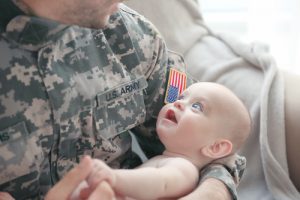
U.S. Rep. Don Bacon (R-NE) this week reiterated his strong support for a 15 percent pay raise for junior enlisted servicemembers in the Servicemember Quality of Life Improvement and National Defense Authorization Act (NDAA) for FY 2025, H.R. 8070.
Bacon, chairman of the House Armed Services Committee’s Cyber, Information Technologies, and Innovation Subcommittee and Quality of Life Panel, delivered remarks on the House floor in support of the NDAA. The bipartisan bill includes a targeted 19.5 percent pay raise for junior enlisted servicemembers, improves Basic Needs Allowance and Housing Allowance, supports military spouse employment, and makes investments in military housing, childcare, and schools.
“This year’s NDAA is a strong, bipartisan bill that supports our servicemembers, modernizes our fighting force, and ensures U.S. forces are well equipped to fight and win from competition to conflict,” Rep. Bacon said in his remarks.
The congressman took issue with the Biden Administration’s Statement of Administration Policy dated June 11 regarding H.R. 8070 that “strongly opposes” making a significant and permanent change to the basic pay schedule of junior enlisted members.
In a separate statement, Rep. Bacon said, “It’s outrageous that President Biden doesn’t believe those fighting to protect our country deserve a living wage … “The proposal to raise junior enlisted pay was based on the bipartisan Quality of Life panel report, led by Rep. Bacon and U.S. Rep. Chrissy Houlahan (D-PA).
“Many of our married junior enlisted are on SNAP and rely on food banks. The best military in the world should have no one on SNAP or be reliant on food banks,” Rep. Bacon said in a written statement.
In addition to supporting servicemembers and families, this year’s NDAA also makes strides in bolstering America’s offensive and defensive posture in cyberspace, promotes innovation, invests in critical technology areas like artificial intelligence, and secures sensitive military research from adversaries, Rep. Bacon said in his speech on the House floor.
“This year’s NDAA also advances critical partnerships between our universities, military services, and combatant commands, including at United States Strategic Command and the University of Nebraska, to develop next generation military technologies,” he added.



